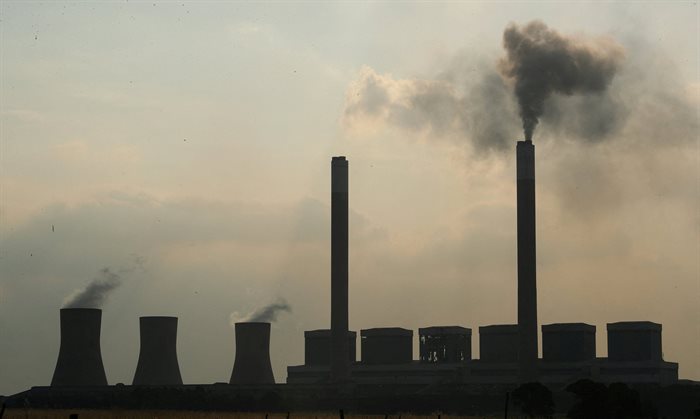SA needs $250bn over 3 decades for clean energy transition - report
Moving South Africa's coal-dominated economy onto a greener footing will require at least $250bn over the next three decades, a report released on the sidelines of the World Economic Forum said on Thursday, 26 May.

Smoke rises from the Duvha coal-based power station owned by state power utility Eskom, in Mpumalanga province. Reuters/Mike Hutchings
Around half of the total investment, $125bn, is needed to ramp up wind and solar power projects as the country mothballs coal-fired plants that currently supply the bulk of its energy needs, said the consultation document.
The report was produced by academics at South Africa's Stellenbosch University in conjunction with the Blended Finance Taskforce, a body set up in 2017 to help mobilise large-scale private capital in a bid to end poverty in line with the United Nations' Sustainable Development Goals.
South Africa is the world's 12th biggest emitter of climate warming gases and the biggest in Africa. In November, the United States, Britain, France, Germany and the European Union agreed to offer an $8.5bn package to help South Africa accelerate its transition from coal, although exact details and timelines are still being discussed.
More equitable energy system
"It will take at least $250bn spent over the next three decades to transition to a low-carbon, more equitable energy system in South Africa under an ambitious decarbonisation scenario (coal off by 2040)," the authors said.
Besides building up renewable projects and infrastructure, funding is also earmarked for gas plants and energy flexibility, new transmission lines as well ensuring that thousands of coal workers whose jobs are threatened will be reskilled, a political hot potato for the ruling African National Congress government and its labour allies.
"Aligning the right type of capital with the right investments and costs is key to meeting South Africa's just energy transition objectives," the report said, adding that the definition of "just" should extend beyond workers to address the challenges of communities in coal-dependent areas.
